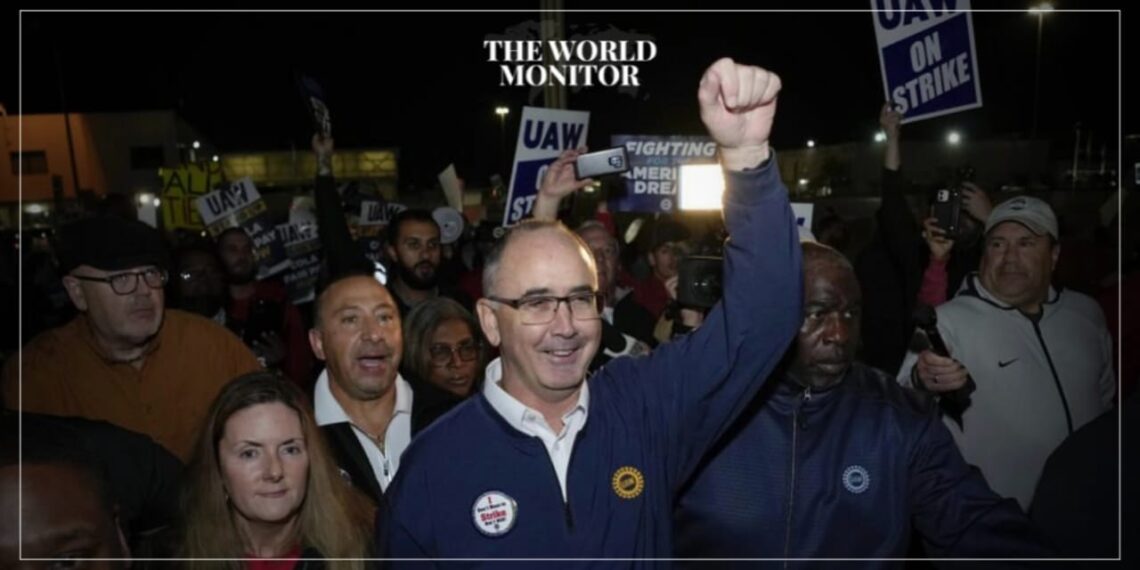In an unprecedented move, thousands of workers across the US automobile manufacturing industry have downed tools, marking the most significant labor action in the nation for several decades.
Following unsuccessful negotiations regarding new collective labor contracts, employees from the three largest automobile manufacturers in the US initiated strikes at three key factories as of last Friday. The sound of car horns and applause outside Ford’s Detroit factory heralded the arrival of Sean Finn, the head of the United Auto Workers (UAW) union, after last-minute negotiation efforts with General Motors, Ford, and Stellantis failed.
During a digital broadcast shortly before the September 14 deadline, Finn announced, “Today, for the first time in our history, we will strike at the ‘Big Three’ simultaneously.” Finn highlighted that the union members would strike at one plant for each company: a General Motors factory in Wentzville, Missouri, a Stellantis facility in Toledo, Ohio, and a Ford factory in Wayne, Michigan. However, only final assembly and painting processes are affected by the strike.
Based on estimates from the UAW, approximately 12,700 employees ceased work last Friday – a fraction of the 150,000 workers in the automobile sector represented by the union. There’s potential for this strike to expand if negotiations don’t improve.
One worker, Rachel Jad, joined the assembly in Wayne, showing solidarity with her colleagues. Working in a nearby facility in Livonia, she stated, “They’re moving in the right direction. If negotiations don’t progress, more factories will join.”
This strike poses a fresh challenge for President Joe Biden, who’s actively sought support from organized labor as part of his campaign for a second term. Notably, UAW has refrained from endorsing him, while other major unions have taken the step. On Thursday evening, Biden conversed with Finn and other industry leaders discussing the ongoing negotiations.
Addressing reporters outside the Wayne factory, Biden emphasized, “I don’t want to talk politics. It’s about our members today.”
Many hourly-wage workers are pressuring the major car manufacturers to offer better deals for employees, citing low wages and reduced allowances after the 2008 financial crisis when General Motors and Chrysler (now part of Stellantis) underwent restructuring to avoid bankruptcy. These companies have reaped significant profits in recent years. Paul Severt, a 29-year veteran at the Ford factory in Wayne, expressed, “This company has been making money on our backs for years. I think it’s time we get our due.”
While Finn had hoped to avoid a strike, he blamed the companies for delaying serious negotiations. The union’s demands include a 40% wage increase, essential to match the raises received by executives. Other sticking points involve raising wages and allowances for junior employees to narrow the gap with more experienced colleagues, who currently earn approximately $32 per hour.





